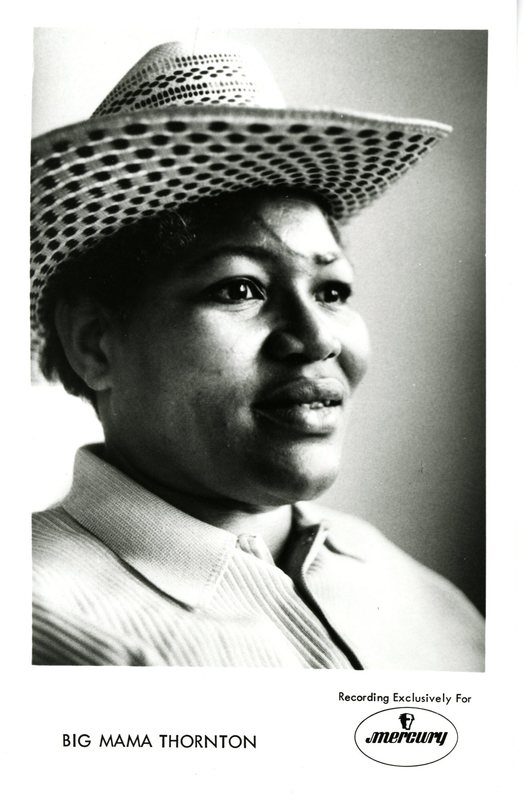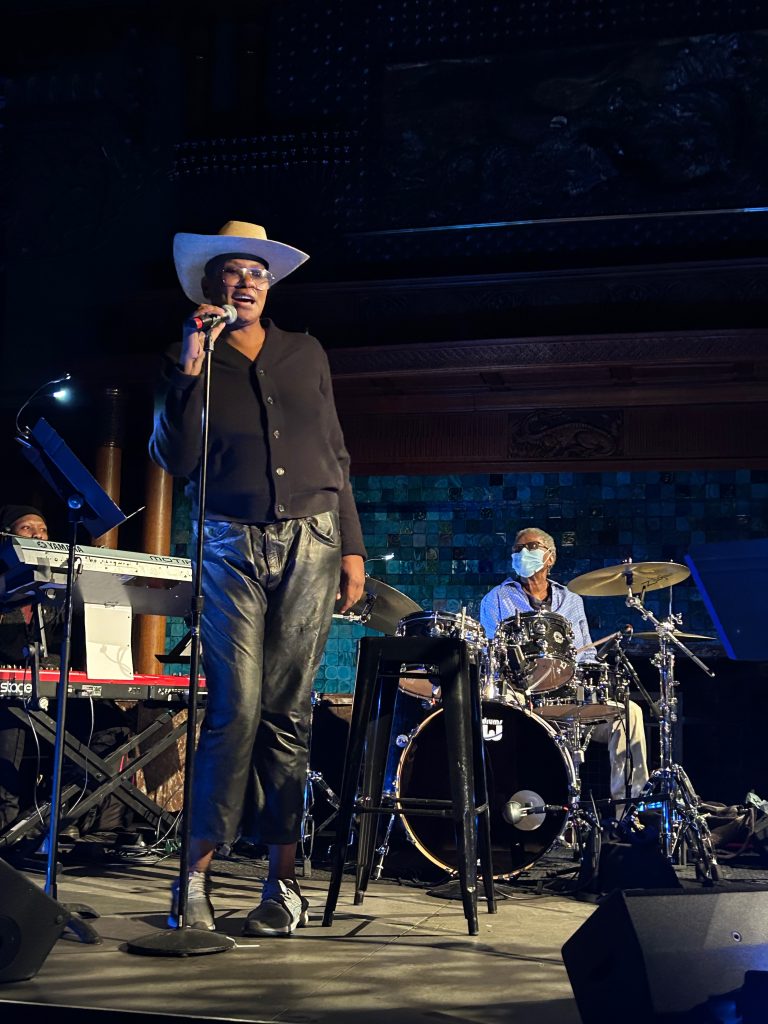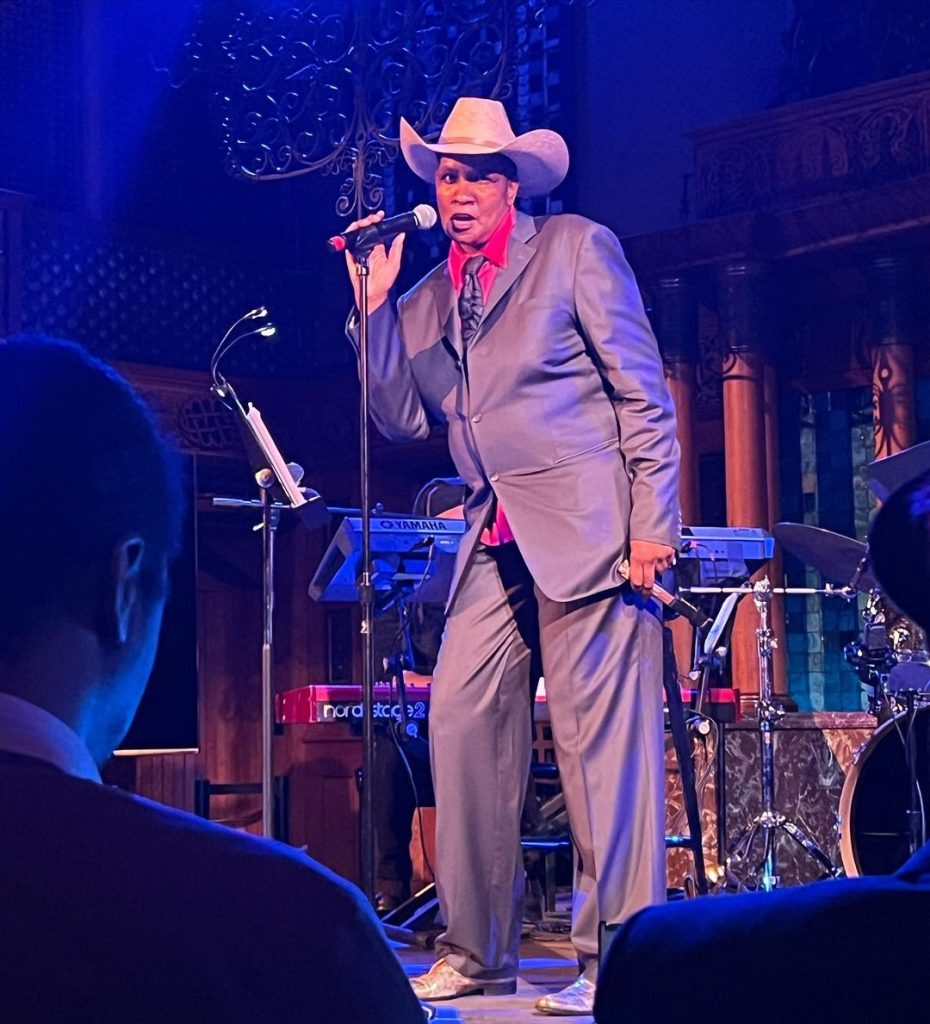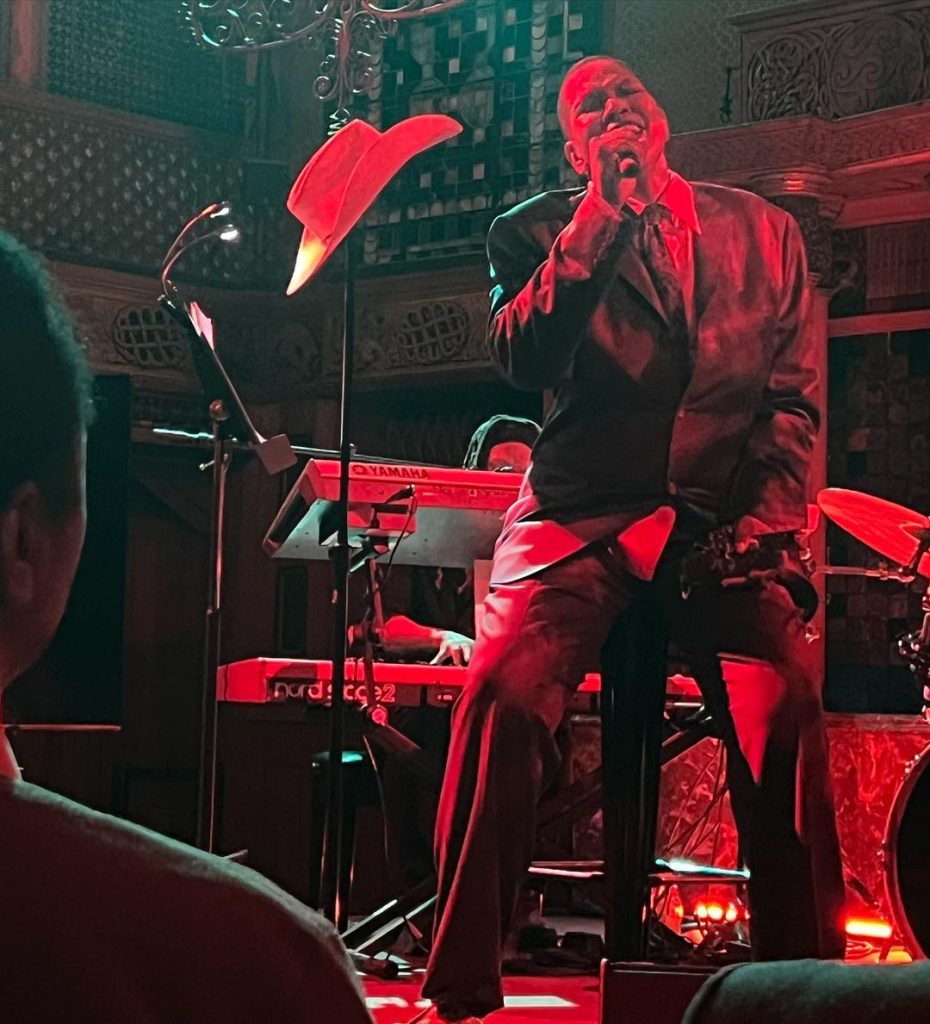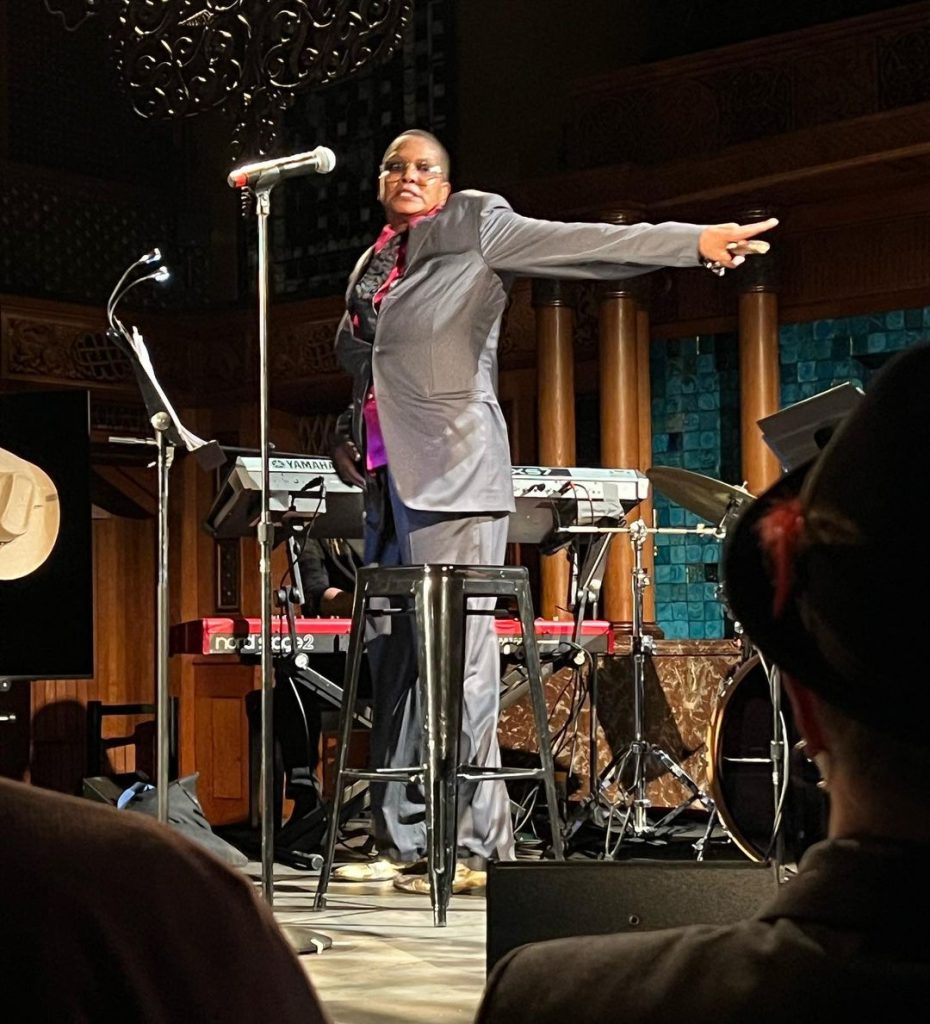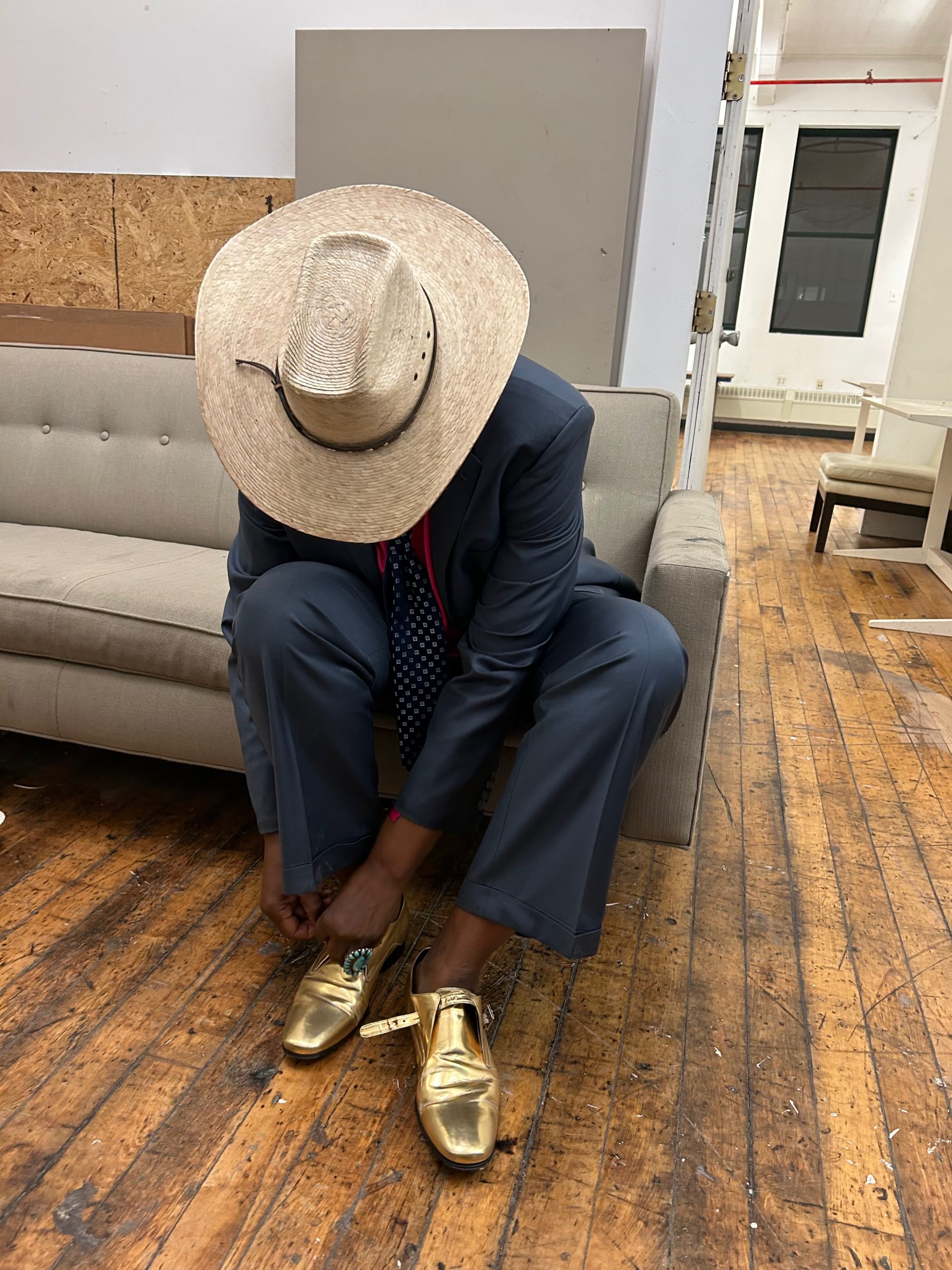
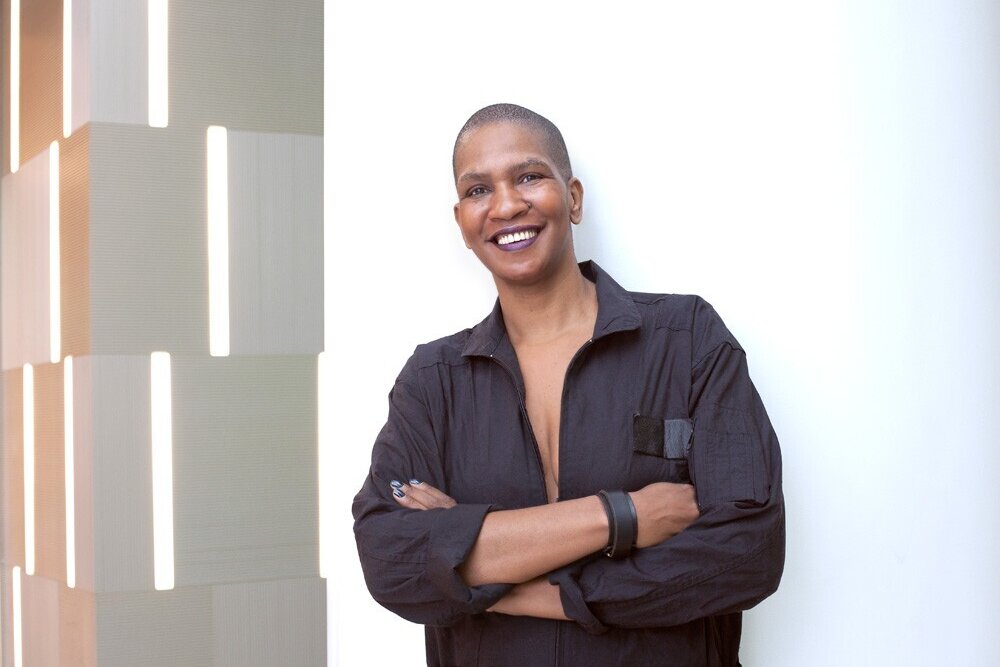
Performance poet Pamela Sneed and I developed a stage piece and film around her genre-busting meditation on the life and influence of Willie ‘Big Mama’ Thornton, one of the great unsung originators of Rock & Roll.
Black, female and queer, Thornton was the writer of ‘Ball and Chain’ (a massive hit for Janis Joplin) and the first to record ‘Hound Dog,’ which launched the career of Elvis Presley. Though she performed throughout her short life, she never received the recognition she was due as an innovator of rhythm, vocalizing, melody–and iconography.
Big Mama Thornton is part poetic deconstruction, part musical performance exploring the indelible influence an artist can have over kindred spirits in the future, despite years of marginalization and struggle.
Pamela and I have been friends and neighbors in Brooklyn for several decades, having met in Susan Batson’s legendary Exer-Actor sessions. ‘Batson’ is a synonym amongst several of my peers for a kind of passionate, rigorous and unrelentingly raw approach to performing, and those terms certainly apply to Pamela’s varied creative endeavors.
We’d meet on the street in the neighborhood and what usually started as ‘heys!’ turned into lengthy dialogues about culture, politics, and philosophy. I had several of her books and seen her perform a few times (KONG at The Long Island University Theatre was a particular favorite). We frequently kept up with each other’s work.
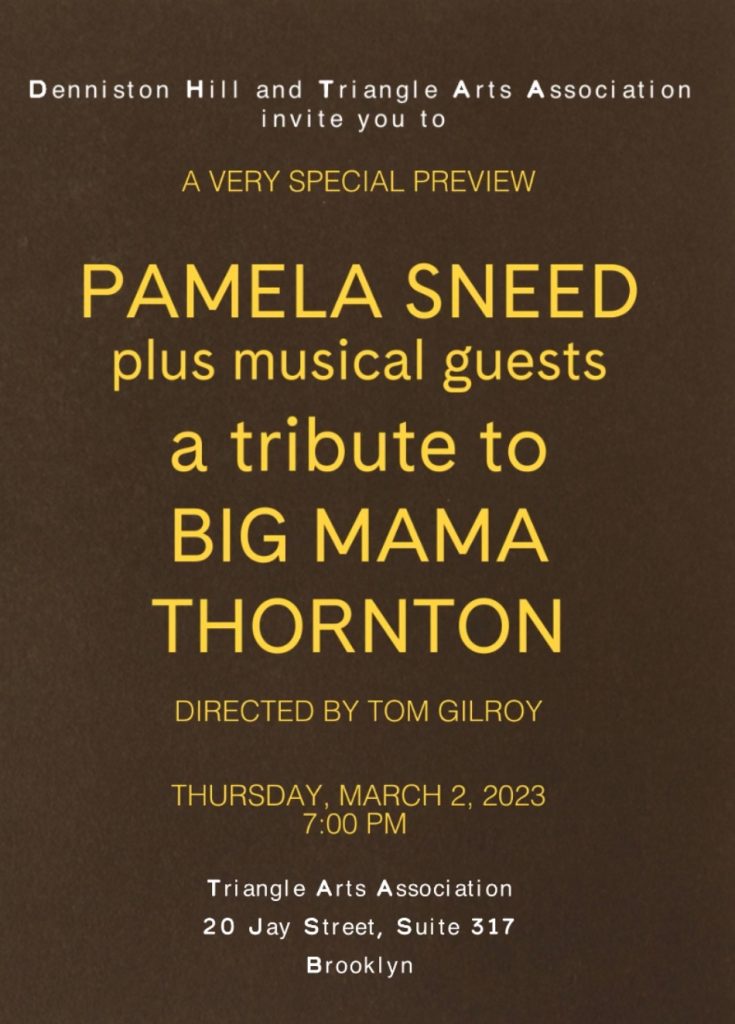
In the winter of 2019/2020, we bumped into each other and Pamela asked if I’d be willing to direct her in something. I of course said yes without even knowing what the project was.
She was in the early stages of developing a solo piece about Big Mama Thornton, who I knew very little about, and she wanted to explore a kind of musical hybrid of performance art and biographical tribute.
I’d done a lot of theatre but never a musical. (The closest I came were a few music videos.) Pamela hadn’t written much as of yet but wanted to develop it out of improv and basically wanted me to simply be another set of eyes and ears to help her track where it was going or could go.
Triangle Arts in nearby Dumbo had given us a rehearsal space and she would riff on some raw ideas and I would sit and watch. In many ways it was like an extended version of some of Batson’s exercises, so it felt very natural and there was a shared vocabulary about process. We had an assistant notate some of our discussions and then Pamela would apply what she wanted, revise, and we’d do it again a few days later. It was fascinating to watch her literally grow the piece.
Often we would walk home through downtown Brooklyn discussing possibilities, and with each passing rehearsal, it became clearer she was going to need a band. I urged her to play in a club somewhere as prep and she ended up doing a few songs at this lovely Valentines Day Dyke Night rock event in a basement in the East Village. It was her first night singing in front of audience and she was pure electricity.
Then Covid hit. Rehearsals grew more infrequent but were replaced by long walks in the neighborhood, mostly me listening to her, encouraging her, and asking for clarification when something didn’t track for me as the director.
Every time we walked, she developed her ideas impressively. I worried that the unknown of Covid and people not being able to congregate in a room together would let the piece slip away in its nascent stages, but Pamela was industrious and each time we met, her concept had taken quantum leaps.
Around two years later, we rented a rehearsal space in the Meatpacking District for her to further develop the monologues while also rehearsing about eight songs with a full-on (and amazing) band in Harlem. She tied everything together and we finally did a dry run at Triangle. (They never abandoned us.)
Within a few months we were rehearsing a fully mounted show at the Park Avenue Armory, where she sold out the venue in record time. Pamela had fully interwoven her own history and monologues into Big Mama’s and created a truly unique hybrid of juke joint and performance art. She unsurprisingly received a standing ovation.
She’s now taken the show out on the road, and I’m sure developing it as she goes, directing herself and rotating musicians. I’m proud to have been involved in the development of the piece and am excited to see how Pamela continues to grow it.
